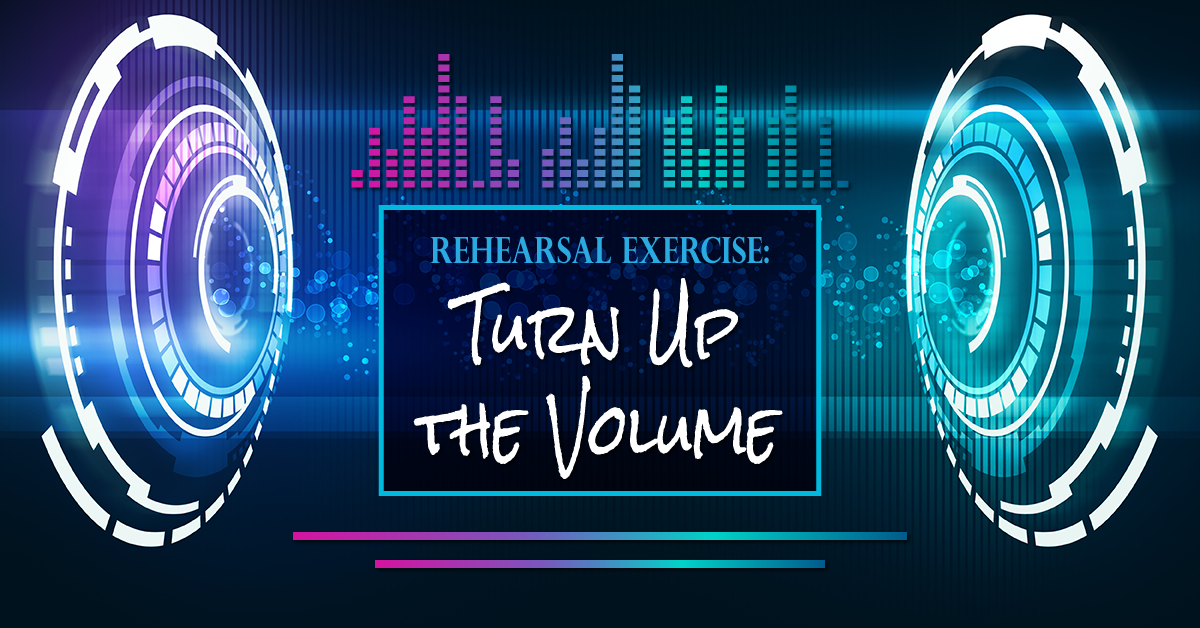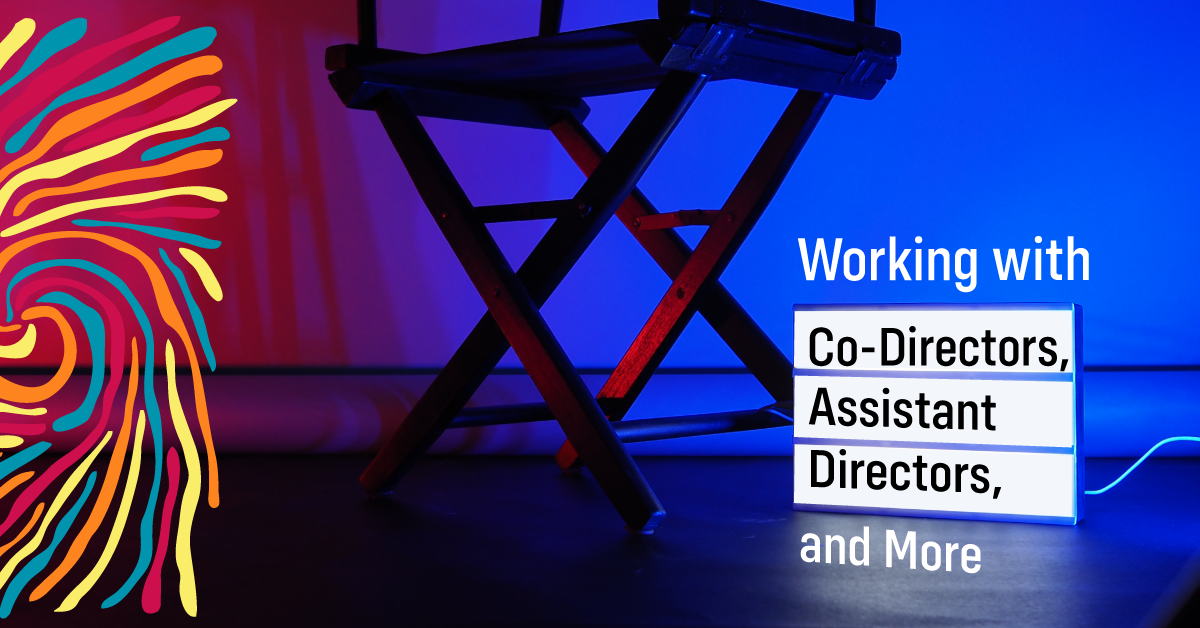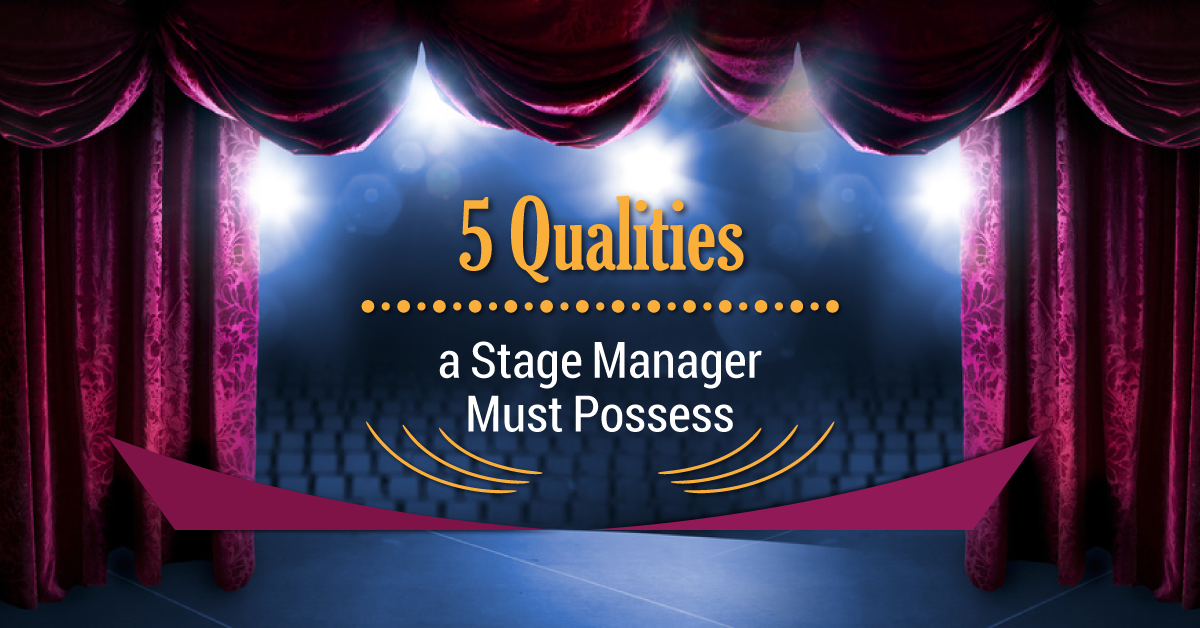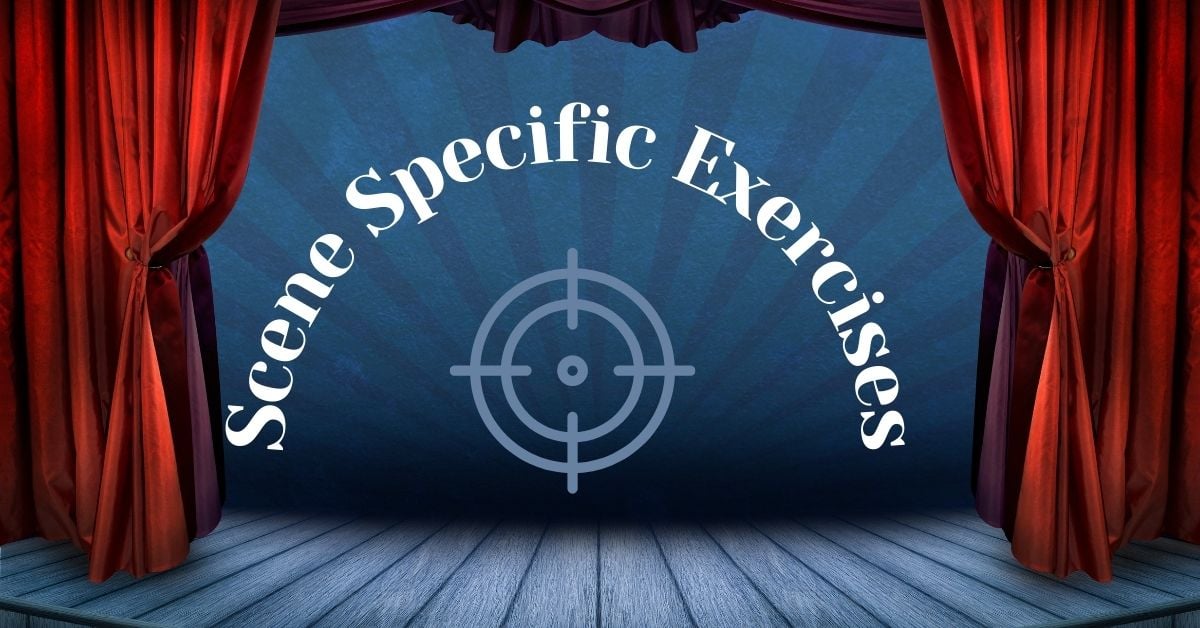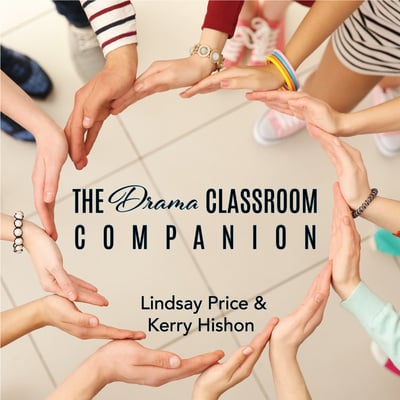Rehearsal Exercise: Turn Up the Volume
Acting is supposed to be real, right? We talk with our students about bringing honesty and realness to the stage when they are performing. With that in mind, however, how often have you heard yourself saying in rehearsal, “More energy!” “Louder!” “Don’t hold back!” “Give me more of that!” “You can go even bigger!”
That tends to feel less real and less natural.
It can be challenging for students to push themselves outside of their comfort zones when it comes to performing. Some students may not realize what “going bigger” or “not holding back” actually means. They are trying to be natural and act “real” onstage, while the director is telling them to cheat out, project their voices, and add gestures and vocal nuances that feel anything but honest to them. The director is thinking about what the audience can see and hear, which can be hard for students to understand when they’re working in an enclosed drama room. Everyone in this room can see and hear them, right?
But it’s entirely different when an audience is present.
Alternatively, some students are shy, and/or afraid of looking silly onstage. They hold back (intentionally or not), because they don’t want people to think badly of them or tease them. This limits their performance, and can also affect them technically – they may speak quietly, enunciate poorly, or avoid large or unusual physical movements, gestures, or facial expressions. This can give their performance a flat, limp quality. (For those students, check out this article: You Want Me to Do WHAT Onstage? It has some more useful tips!)
Other students lack confidence and feel like they’re already giving everything they can give. This may be due to fear, lack of experience, or doubting their own abilities.
If you are struggling to get more out of your student actors, try the following exercise. It encourages people to be ridiculous, over-the-top, and silly. It’s a fun and safe way for students to push themselves further with their acting choices – and it usually ends up bringing them closer to what you want them to actually portray onstage.
At your next rehearsal, have students perform a scene as they have been doing it previously. Then have them perform it again, but this time they are “turning up the volume.” This begins with literally being louder. Have students pretend that the audience is wearing earmuffs and sitting miles away from the stage. You might want to sit far away to help them with this.
In this exercise, “turning up the volume” also means increasing everything else:
- Over-emphasize diction. Make every single word and punctuation mark important.
- Increase the emotions. If the character is happy, then in the second pass of the scene, they are absolutely ecstatic. If the character is sad, then they are in the absolute depths of despair. If they are angry, then they are explosively furious.
- Make the physicality even bigger. If a student points at someone, in the “turned-up” version, they might rush towards the person, point with a dramatic sweep of their arm, and add a vocalization, such as a gasp or a sigh. If a student wipes away a tear, they may collapse onto a chair in a barrage of sobs and weeping.
The result will be ridiculous and clown-like, and that’s the point. Students will feel silly while they’re doing this. But everyone will be being silly together. Encourage this. Challenge students to “out-big” each other. Students really can’t go too big with this exercise.
The only limitation is safety. Please ensure that students aren’t doing anything that may hurt themselves or another student – keep pratfalls, stage combat, and any other specifically choreographed movement safe and controlled at all times.
After the “volume turned up” pass, point out all the things that happened in the scene that you especially liked or that went well. Make note of any moments or sections that occurred in that pass that you want to take and make “official” in the scene for the actual show.
Explain to your students why you liked what you liked. Besides pointing out specific moments, also focus on the overall feeling of the scene – most likely, the second pass had better energy, volume, and diction, as well as a feeling of freedom and bravery. In being allowed to be silly and over the top together, students (hopefully) felt that they weren’t being judged or made fun of.
When everyone is bigger together, it makes it a lot easier than having to go big alone. And it proves to students that they have more within themselves to give than they originally thought possible. Rather than being a critique on them holding back, it is a breakthrough moment they can be proud of.
Have your students reflect on how they felt in the “volume turned up” pass, either as a post-exercise discussion or a personal reflection.
Related Articles
The Drama Classroom Companion
by Lindsay Price & Kerry Hishon
The Drama Classroom Companion is filled with articles and exercises to build the skills needed for theatrical performance as well as real world skills like creative thinking, critical thinking, collaboration, and communication.
The Rehearsal Companion
by Kerry Hishon
You’ve chosen the play, paid the royalties, done the script analysis, held your auditions, and cast the show. Tomorrow is the first rehearsal. Are you ready? Really ready? The Rehearsal Companion can help!
